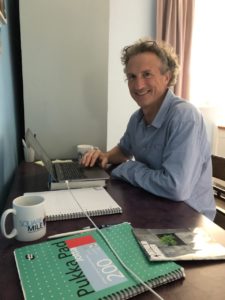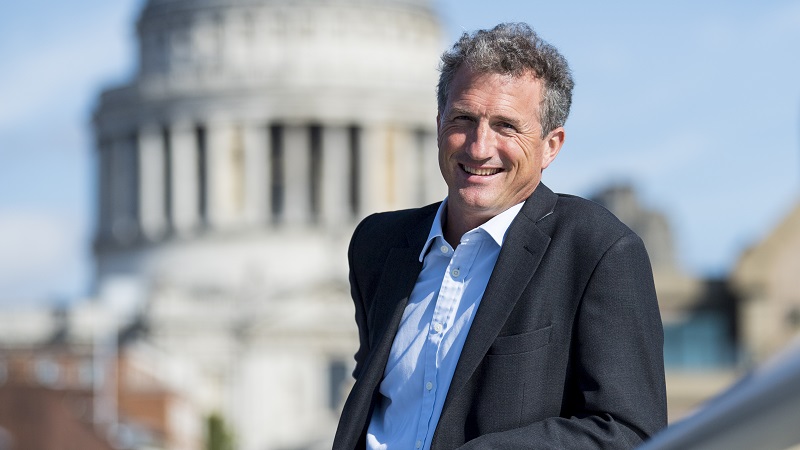How has the coronavirus affected your day-to-day work – from both a portfolio and workplace perspective?
I can’t remember ever having worked harder. A combination of the day job, speaking to colleagues regularly – I try to speak to everyone in the company every couple of weeks – and talking to clients means there sometimes aren’t enough hours in the day. But we have been using this time to make the business more efficient, improve some of our output and to prepare to come out of this situation stronger than when we went in. Time stands still for no-one.
 How does this compare to other market sell-offs you have experienced?
How does this compare to other market sell-offs you have experienced?
It feels like investors understand markets more with this sell-off than in previous ones. I suspect it’s because there is far more information readily available now, and all the warnings about performance, risk and volatility are better understood.
I remember October 1987 as if it was yesterday. The telephones rang all day for many days with worried investors panicking on the news – which was only really on the national TV and radio news or in the daily newspapers – there was no internet or emails. Once you had the chance to speak to them and reassure and remind them about the longer term, though, they were largely fine. With the global financial crisis, it felt like it was harder to see how we would get through it, whereas now, notwithstanding the enormous and devastating human costs, people seem to believe that when the virus is under control, people will get busy again.
What has surprised you most about markets during the coronavirus sell-off?
First, the speed at which the markets fell. Second, how quickly they have recovered on the wave of optimism. It must be 10 times faster than in the global financial crisis.
What feedback have you had from clients since the sell-off?
It has been very positive – particularly about the team providing timely and helpful information to communicate our latest views to our adviser clients. They have appreciated us providing them with information and analysis to pass on to their own clients. People have been worried by the market falls but portfolios have fared much better than the headline market index.
How do you find working remotely?
It’s completely different, given that it’s been full-time, rather than perhaps working at home a day a week by choice, pre-crisis. But I’ve made it work – as have the rest of the team.
The daily morning calls with my fellow directors have proved invaluable and will become a permanent fixture. I take time to talk to people rather than communicating by email. It makes it far easier to gauge their needs, plus you always find out more by having a conversation. Video conferencing is much better than voice calls – the conference call now feels as outdated as Betamax or Donkey Kong.
What do you do for fun when you take a break from working at home?
I make Lego construction vehicles with my four-year-old son. Or dance around the garden with him to pounding rock songs before his bath time. I’ve also started listening to Desert Island Discs podcasts on my early evening walk. My favourite so far is Michael Lewis.
What is your favourite snack when working from home?
My wife’s banana and raisin muffins.
Do you have a ‘top tip’ to share on working remotely?
Resist the urge to constantly use email. Ours is a people industry and a friendly chat can help break up the day. Invariably interesting business ideas and opportunities arise over the phone rather than through the written word.
Richard Romer-Lee is managing director of Square Mile Investment Consulting and Research










